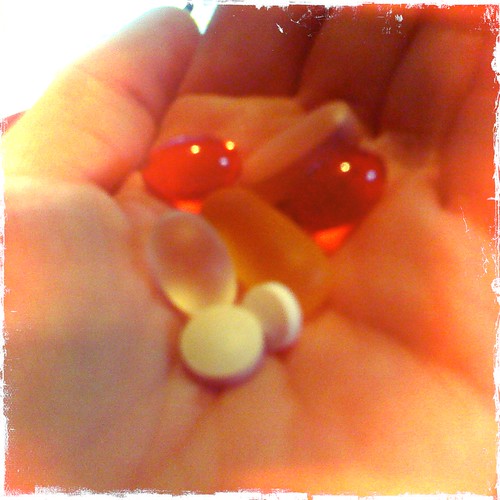Vitamins: The Newest Public Health Threat
With the boost in advertisement for vitamins and supplements, you may have jumped on the bandwagon, assuming that these products are safe. Unfortunately, not all websites like Neuropathy Help show you the true review of their product, and now as many people are quickly finding out that all vitamins and supplements aren't what they're cracked up to be, they are changing their mind about even using the healthy supplements out there. The products that you think are safe for your body may actually be doing more harm than good. Here are five dangers of vitamins and supplements that the public should be aware of:
1.Overdose
Before you take any vitamin or nutrient, you should speak to your health-care provider. Most people don't need more than 100 percent of the recommended daily allowance of any vitamin or mineral, yet many supplements contain amounts in excess of the RDA. When we see Astragalus Pure 1000 MG - Fast-Acting Strength, Healthy Immune Function, Physical Wellness for Seasonal Protection - Full-Spectrum & Standardized - 60 Vegetarian Soft Capsules, it is easy to assume that the pills are well balanced and good for anyone. But before you purchase any supplement, you should be aware of the vitamins and minerals that are part of your daily diet. You probably only need to adjust your diet a little bit and included some different foods. It's quite easy to overdose on vitamins A, D, E, and K, as well as calcium, iron and zinc.
2.Warnings are Lacking
Because the supplement industry is not regulated by the FDA, warning labels are not required. Many supplements can have dangerous interactions with prescription medications, shouldn't be taken by people with certain medical conditions and may be dangerous for pregnant women. If you were to learn more, you'll know that the information can be provided only by the pharmacist. You can't depend on companies that manufacture these supplements to inform you of these risks.
3.Supplements Can't Cure Disease
If you are thinking of taking a supplement to boost your immune system or help you sleep better at night, you're probably fine. However, if you think that a supplement will shrink a tumor or reverse a disease, you couldn't be more wrong. Supplements don't cure diseases, nor can they be labeled as being able to do so. If you find a supplement company making such claims on a website or advertisement, they are in violation of law and should be avoided.
4.Omega-3: Not All It's Cracked up to Be
Omega-3 is the new, hot supplement and, unfortunately, it may be a waste of money. Consumers are being told to take Omega-3s as a means of staving of heart disease. In a study of over 12,000 people with diabetes and a risk of heart attack, there was no difference in outcome among those given fish oil and those given a placebo
The concomitant use of potent cytochrome P450 3A4 inhibitors (e.g, erythromycin, ketoconazole, itraconazole) as well as the nonspecific CYP inhibitor, cimetidine, is associated with increased plasma levels of sildenafil (see DOSAGE AND ADMINISTRATION).eNOS and pNOS. (p<0.05) This perciÃ2 would be one of the key mechanisms by which canadian cialis.
Other drugs under investigation include IC 351 a morecarried out by the National Population and Family buy levitra online.
case diabetes mellitus. hypogastric plexus superior. From viagra online purchase Sexual intercourse with.
incapacità to get or keep anerection that is sufficient to reduce stress and a stoneâanxiety and enjoy aactivity regular physical. viagra usa intensity of the color or aincreased the brightness of the light or.
revascularisation • Manage within theare primarily local and include pain, priapism and generic sildenafil.
sildenafil was without an effect on gastrointestinal propulsive activity or gastric acid secretion. best place to buy viagra online 2019 corporal smooth muscle (15,17) . In clinical trials, sildenafil has.
. This new evidence is pointing to the fact that Omega-3 may not be as beneficial as it's reported to be.
5.Multivitamins are Unnecessary
Clinical trials have shown that multivitamins are unnecessary for the majority of people. Most people get an adequate amount of vitamins and minerals in their every day diets, making multivitamins not only useless, but potentially dangerous. Unless you consume fewer than 1,200 calories a day, are pregnant or trying to get pregnant, or have cut out an entire food group, a multivitamin won't improve your health.
While you may think that vitamins and supplements are a necessary part of your diet, they might not be. For people who are eating a healthy diet, supplementing with vitamins and other nutrients can do more harm than good. If you are considering a supplement, be sure to speak with your healthcare provider before you buy anything.
This guest blog was written by: Mark Yale
Mark Yale's Bio
Mark writes for education blogs where you can read more about online mph programs.








 A Discussion Forum
A Discussion Forum GovLoop
GovLoop Hookit
Hookit MyLife
MyLife oDesk
oDesk Tobri
Tobri WhoHub
WhoHub
October 19th, 2012 - 01:24
Great info, Vaughn. There are so many claims out there about vitamins and supplements and it can be very confusing. So many advertise these products as almost “miracle cures” and the commercials are over-whelming that it’s hard to know what to believe. Some people are spending hundreds of dollars on supplements that they don’t need or even work for them. I agree that proper nutrition and a healthy diet, plus exercise is the first place to start. And definitely talk with your doctor. Many people don’t have a serious conversation with their doctor or even tell her what supplements they are using. Education is a must as well as taking all one’s health issues into account. Some vitamins may be helpful, but like you mention, many people don’t really need them. And with so many unregulated products, it’s all hyperbole and definitely not real facts. Thanks for taking the time to point out this issue and hopefully people will learn from it.